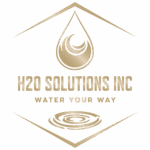Moses Lake Water Quality: Ensuring Clean and Safe Water for Your Community
Understanding Moses Lake's Water Quality
The Environmental Working Group (EWG) found in a 2024 report conducted by the Washington State Department of Health and the EPA that Moses Lake has 27 total water contaminants, 11 of which exceed EWG Health Guidelines.
| Contaminants | Contaminant Level | MCL | EWG Standards |
|---|---|---|---|
| Bromodichloromethane | 0.252 ppb | No legal limit | 0.06 ppb |
| Dibromoacetic acid | 0.480 ppb | No legal limit | 0.03 ppb |
| Dibromochloromethane | 0.543 ppb | No legal limit | 0.1 ppb |
| Haloacetic acids (HAA5) | 1.44 ppb | 60 ppb | 0.1 ppb |
| Haloacetic acids (HAA9) | 3.39 ppb | No legal limit | 0.06 ppb |
| Nitrate | 0.592 ppm | 10 ppm | 0.14 ppm |
| Nitrate and nitrite | 0.516 ppm | 10 ppm | 0.14 ppm |
| Perfluorohexane sulfonate (PFHXS) | 2.14 ppt | 10 ppt | 0.001 ppt |
| Perfluorooctane sulfonate (PFOS) | 1.70 ppt | 4 ppt | 0.3 ppt |
| Total PFOS and PFOA | 52.2 ppt | No legal limit | 0.007 ppt |
| Total trihalomethanes (TTHMs) | 3.32 ppb | 80 ppb | 0.15 ppb |
Factors Affecting Moses Lake Water Contaminant Levels
Inorganic Contaminants
Salts and metals are commonly found in urban stormwater, industrial wastewater, and residential wastewater.
Radioactive Contaminants
These can come from natural soil deposits, oil and gas production, and mining activities.
Organic Chemical Contaminants
These include synthetic and volatile organic chemicals originating from industrial and petroleum by-products, urban stormwater, and septic systems.
Microbial Contaminants
Viruses, bacteria, and other microorganisms can enter the water from sewage treatment plants, septic systems, wildlife, and agricultural livestock farms. Natural occurrences, such as blue-green algae (cyanobacteria) growth, are common in Moses Lake, especially during the summer heat, producing harmful toxins.
Pesticides and Herbicides
Runoff from farms, urban stormwater, and residential water waste contribute to these contaminants such as phosphorus.
Solutions for Improving Moses Lake Water Quality
Here are filters that can reduce contaminant levels found in Moses Lake water. Out of the three, reverse osmosis filtration systems are most recommended.
| Contaminants Above EWG Health Guidelines | Activated Carbon | Reverse Osmosis | Ion Exchange |
|---|---|---|---|
| Bromodichloromethane | |||
| Dibromoacetic acid | |||
| Dibromochloromethane | |||
| Haloacetic acids (HAA5) | |||
| Haloacetic acids (HAA9) | |||
| Nitrate | |||
| Nitrate and nitrite | |||
| Perfluorohexame sulfonate (PFHXS) | |||
| Perfluorooctane sulfonate (PFOS) | |||
| Total PFOS and PFOA | |||
| Total trihalomethanes (TTHMS) |
Professional Water Quality Testing for Moses Lake Residents
While the City of Moses Lake is actively enhancing tap water quality, you can take additional steps to ensure your home’s water meets the highest Environmental Working Group (EWG) standards. Start with a complimentary water analysis from H2O Solutions, Inc. Our experts will assess your water quality and provide customized solutions for safer, cleaner drinking water.
"*" indicates required fields
